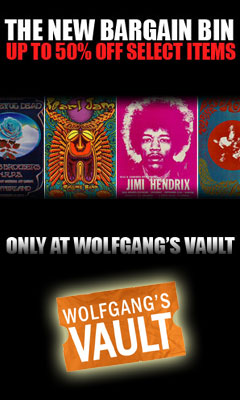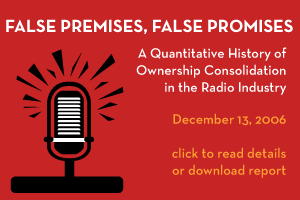|
MUSIC BUSINESS
WHAT MAKES A MUSIC SCENE?
By Mike Iacuessa
When I was a teenager I was fortunate to be surrounded by one of the
greatest music scenes ever.
It was London in the early 1980s and even in my
mid-teens it was not uncommon for me to see three shows a week. The New Wave
of British Heavy Metal was the craze of the moment. I saw Iron Maiden play
in a pub back when they were more biker metal than the fantasy spandex
version. New Wave was at its peak. And punk, while at that
time perceived to be on the downswing, was still a prominent force - the
Clash after all yet to make it big in America. In fact, the Clash would have
struggled to make a top ten list of local bands, vying with Siouxsie and the Banshees, Motorhead, Adam Ant,
the Specials, Joy Division, the Damned, PiL and others. Ska, reggae influenced rock and the New Psychedelia sounds of Depeche Mode and Echo and the Bunnymen also were emerging.
To Americans I would say later, imagine Seattle in the early 1990s multiplied by four or five times. And, added to it all, the city was still home base for some of the greatest rock bands in history dating back 20 or more years,
not to mention newer chart monsters like The Police and AC/DC.
Years later, when I was old enough to realize that what I had experienced was not commonplace, I became fascinated by what makes a great music scene happen or, for that matter, any art scene. Certainly, Britain's unemployment woes at the time made playing in a band appealing for those with few other options. Clubs, which were not hampered by the 21-and-over drinking age requirements
one saw in America, were easily filled, and thus in abundance. A wide variety of independent record labels offered opportunities for startup bands. Marketing costs were comparably low for them since if a band conquered London, one city alone, its popularity could easily stretch to the rest of the country if not mainland Europe. And even though Britain had far fewer radio stations than a region
the same size in America would have, there were celebrity disc jockeys - on radio or in clubs - that helped push the local scene. Britain's socialism helped making being an artist an easier lifestyle choice as well.
In thinking deeper about it, however, it became apparent to me that economics also played a major role in other music scenes. The media and Baby Boomers frequently reminisce about how the 1960s and 1970s offered such great music but there were underlying sympathetic factors that made it easier to embark on a music career then. Were the musicians that much more creative or was it just that much easier to get noticed? Certainly it was a pioneer era with a new form of rock music emerging, aided by new technologies - the electric guitar and multi-track recording to name two - but the Baby Boomers also offered an audience of unprecedented size. Bill Graham took advantage in building a legendary music scene in San Francisco
by lobbying the city to allow 16-year olds into the dance halls,
something unthinkable today. Bands made more
money playing clubs in San Francisco in the 1960s than they do now. And that is in actual figures, not accounting for inflation.
There also was less monopolistic control of the industry. Smaller independent record labels could compete in the marketplace
and disc jockeys were free to bring new music to the airwaves,
essentially serving as talent scouts for the public.
Both allowed musicians to build a regional following more easily - a far simpler step to undertake than trying to attract the attention of and relying on an international corporation to market them.
There are now just four major record labels that control 85% of the
industry. And radio has lost its vitality, the DJs long ago replaced by
mini-discs put together in a board room and sent to affiliate
stations. When a company such as Clear Channel owns anywhere from 700 to
1,200 stations nationwide at any given time, including as much as seven in some
markets, playlists vary little from region to region. The great American trait
- ingenuity - derived from our widespread believe in
competition has no platform to exist.
Of course, not all musical forms over the past 10 years have limped along.
Rap and hip hop have fared better. But while they may have emerged
as a creative force on their own merits, certainly their lasting power owes
some debt to 1) there being independent investment in the music at the lower
echelons and 2) that they are inexpensive forms of music to record, not
requiring live drums or perhaps any live instruments at all beyond the human
voice.
To understand what makes an art scene thrive, one only needs to look to one of the greatest in history - the Renaissance. Some argue that Florence was a center for the Renaissance because of the good fortune of having da Vinci, Botticelli and Michelangelo as citizens. But would we be as familiar with any of them had the Medici family not been dedicated to supporting their craft and financing their work prior to them embarking on it?
Perhaps private investment is the future of the music industry. Already a few musicians are taking a similar path. Jill Sobule and Marillion recently are among those who have raised money directly from fans to record high quality albums. Of course it helps in a case like Marillion
when the group has been around for nearly 30 years.
Artists tend to band together and feed off each other. That's been true in
prior music, art or literary scenes.
One of the reasons I started the Independent Music Foundation was to offer a
first step for talented innovative musicians which I believe still exist in raw
form in every town in America. In that regard I disagree with recent comments by
Edgar Bronfman, CEO of Warner Music, who hinted he believed "that the number of
superstar acts with long-term appeal...has declined in recent years" as one of
the reasons his company's sales were down. Those acts just need opportunity. Through funding to subsidize recording and production costs, the non-profit's aim is to help promote music that otherwise would never be heard, certainly not with high quality production.
Over the years, I have seen too many talented people in and out of the studio that wound up like the proverbial tree falling in the forest, essentially lacking only money and opportunity to progress further and get their music heard.
Mike Iacuessa is a music producer and founder of the Independent Music
Foundation.
More Music Articles
Wired Gypsy Home Page
| 

